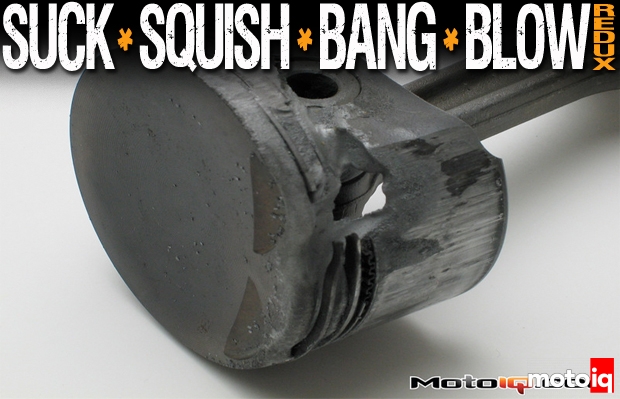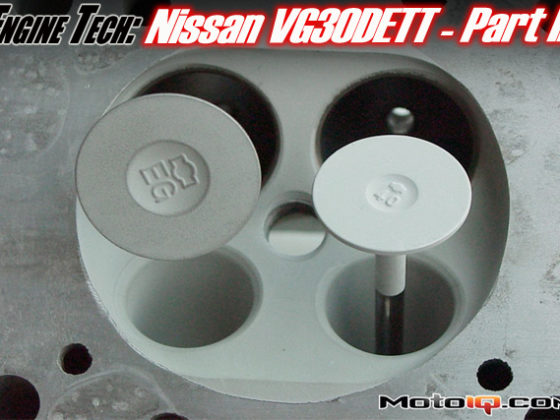,
3. Avoid detonation at all cost.
Detonation is the number one engine killer of the semi experienced tuner. In this case a little knowledge is dangerous and the amateur tuner causes it by upping the boost, advancing the timing or leaning things out a little. Detonation can also be caused by filling with low octane gas or driving a car that is running hot hard. Detonation sounds like some loose bolts being shaken in a tin can. I think people have trouble equating the serious damage that this seemingly little noise can do.
 |
| Have a guy with no mechanical empathy like Jared Holstein, a high compression turbo Focus and probably some inattention at the fuel pump by an easily distracted Jared and you get a recipe for disaster. This is classic detonation damage to a piston and rings. |
Detonation is also called pre-ignition and is caused by uncontroled premature burning of the air fuel mixture causing collision of flame fronts within the cylinder and or extreme pressures and temperatures caused by lighting the fire in the combustion chamber too early in the compression stroke. The severe spikes in pressure and temperature break pistons, burn valves, damage bearings and even connecting rods and crankshafts. Detonation is amazingly destructive.
 |
| Minor or transient detonation damage often leaves a rough sanded texture to the top of the piston or the combustion chamber, typically on the edges near the exhaust valve. If you see this, then you must reduce compression, reduce boost, run less timing, run richer, run cooler or a combination of all of these. |
Prolonged detonation will cause expensive damage to the engine’s deep, expensive internal parts. Don’t go overboard with increasing ignition advance, leaning the air fuel mixture out, increasing turbo boost or raising the compression ratio. Be aware of the heat range of your spark plugs, and run a colder plug if you are doing extended high speed driving or track use. Don’t try to put cheap low octane gas in your modified or forced induction motor. If you are running a high compression or forced induction motor at a track day, consider running race gas as a measure of safety. Even 100 octane unleaded on close to stock combinations adds considerably to safety.
 |
| Severe detonation damage can also bend rods and crank, pound bearings and other internal damage. There are no components that can escape its pounding. |


